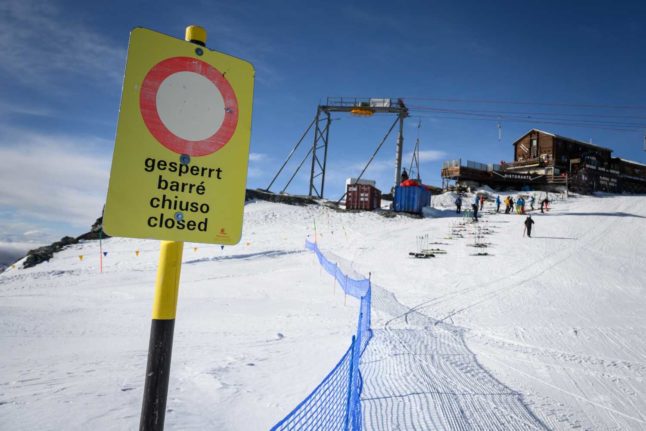The onset of the pandemic has meant that long-ignored borders again become barriers.
While border traffic between the centrally located Switzerland and its four major neighbours was never completely cut, tougher restrictions on non-citizens or non-work-related travel meant that borders became a reality for the first time in many people’s lifetimes.
As at March 3rd, 2021, some of the restrictions remain in place, including entry bans, quarantine requirements and other rules.
Here’s what you need to know about entering Germany, Italy, France and Austria.
Liechtenstein
But first, Liechtenstein. Nestled between Switzerland and Austria, Liechtenstein is perhaps the least famous of Switzerland’s five neighbours.
As Switzerland and Liechtenstein have partnered up in relation to many aspects of the underlying coronavirus protocols, anyone planning a Liechtenstein holiday will be pleased to know that Swiss residents are not prohibited from entry.
France
Swiss residents are not prohibited from entry into France and do not have to quarantine. Arrivals to France will however need to provide a negative test result which is not older than 72 hours on arrival.
Cross-border commuters and people who reside within 30 kilometres of a border area do not need to provide evidence of a test.
France currently has a non-mandatory quarantine, with all arrivals encouraged to self-isolate for seven days, carrying out a PCR test before leaving isolation after the seven-day period.
However, returnees to Switzerland from France will be required to quarantine if they visit any of the following regions: Provence-Alpes-Côte d’Azur, Center-Val de Loire, Hauts-de-France, Île de France, Normandy, Nouvelle-Aquitaine, Occitanie and the Pays de la Loire region.
More information is available at the following link.
UPDATE: Which countries are currently on Switzerland’s quarantine list?
Italy
Swiss residents are allowed to enter Italy – even to pick up some sushi – however they will need to keep an eye on the infection rates in the area they visit.
Under Italy’s traffic light system, people will be refused entry to areas coloured in red or orange. There are currently 20 such areas in Italy.
There is no quarantine requirement in Italy. However, returnees to Switzerland from Italy will be required to quarantine if they visit any of the following regions: Emilia Romagna, Friuli Venezia Giulia, Apulia, Marche and Umbria.
Arrivals to Italy will need to show a negative PCR test which is less than 48 hours old. Those who do not have a test will need to isolate for 14 days.
Germany
Travel into Germany from Switzerland is discouraged but not banned. This includes tourist and shopping travel, although tourist accommodation is not allowed to open at present in Germany.
Whether or not you will have to quarantine depends on which of the 16 German states you are entering. Click here for up to date information.
If the state requires you to quarantine, it will last for ten days but can be ended early from the fifth day with a negative test result.
People entering from Switzerland must have a negative test result of less than 48 hours and must register online.
Anyone who visits the state of Thüringen/Thuringia will need to quarantine on their return to Switzerland.
Austria
Swiss residents will not be prevented from entering Austria, although the Austrian government recommends against non-mandatory travel.
Arrivals from Switzerland must show evidence of a negative test which is less than 72 hours old.
As Switzerland is currently on Austria’s high-risk list, all arrivals must quarantine for ten days on arrival. People can leave quarantine from the fifth day with a negative test (PCR or rapid tests are both fine).
Returnees to Switzerland from Austria will be required to quarantine if they visit the state of Salzburg.
In addition, all entrants will need to fill out the following form.
There are some exceptions, including cross-border commuters and people with urgent family matters.
As with all guides on The Local Switzerland, this is a guide only and does not constitute legal advice.



 Please whitelist us to continue reading.
Please whitelist us to continue reading.
Member comments